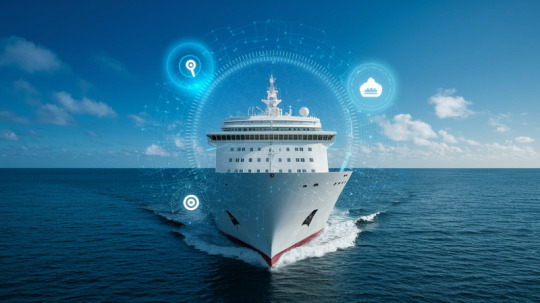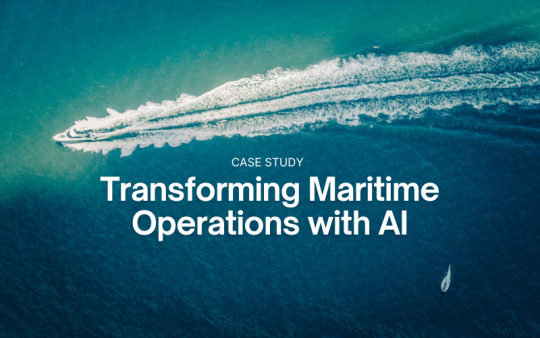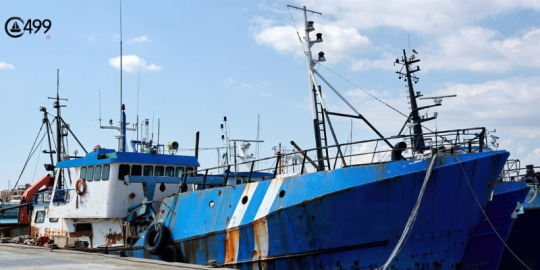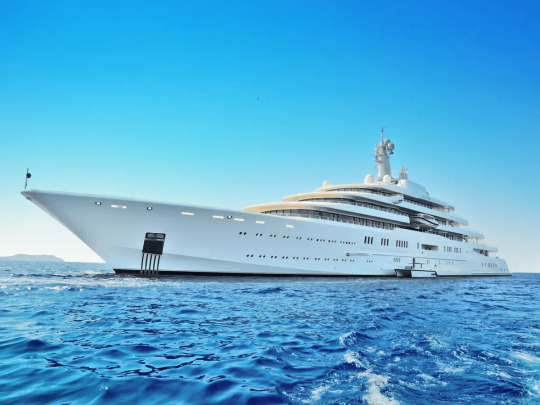499ai is an AI-powered compliance application specifically designed for the maritime industry. This intelligent maritime compliance software automatically verifies each document against current regulations, ensuring vessels, including ships and yachts, remain compliant at all times. It streamlines vessel compliance management, providing a reliable solution for maintaining regulatory adherence efficiently and accurately.Visit: https://499.ai/
Don't wanna be here? Send us removal request.
Text

499ai is an AI-powered compliance application specifically designed for the maritime industry. This intelligent maritime compliance software automatically verifies each document against current regulations, ensuring vessels, including ships and yachts, remain compliant at all times. It streamlines vessel compliance management, providing a reliable solution for maintaining regulatory adherence efficiently and accurately.
#ai in maritime industry#maritime compliance software#vessel compliance software#maritime solutions#ai in shipping#ship compliance software
0 notes
Text
The Future of Dry Docking: AI-Powered Inspection and Planning

Dry docking has always been a critical yet resource-intensive process in the maritime industry. Traditionally dependent on manual inspections, scheduled maintenance, and lengthy downtime, dry docking often leads to cost overruns and unexpected delays. But with the emergence of maritime artificial intelligence, this scenario is rapidly changing. AI is ushering in a new era of precision, predictive insights, and smart planning in dry dock operations.
AI-powered maritime software enables proactive maintenance by analyzing real-time vessel data from sensors, logs, and performance reports. Instead of waiting for visible damage or routine calendar-based inspections, ship operators can now rely on AI-driven insights to predict when and where maintenance is actually needed. This predictive approach not only reduces unnecessary dry dock visits but also improves long-term vessel performance and asset life.
When it comes to inspections, maritime AI eliminates human error by processing high-resolution imagery and structural data using machine learning models. Whether it's hull integrity, corrosion detection, or propeller wear, vessel compliance software integrated with AI can automatically flag anomalies with pinpoint accuracy. These automated inspections are faster, more reliable, and can be conducted before a vessel even reaches the dock—saving both time and cost.
AI also enhances ship compliance by ensuring all maintenance activities align with international maritime regulations. Maritime compliance software tracks inspection records, maintenance logs, and certification timelines, keeping fleet managers informed and audit-ready at all times. With Ship compliance software, compliances becomes streamlined and traceable, reducing the burden on crews and eliminating the risk of penalties or detentions due to overlooked issues.
From planning dry dock schedules to allocating resources efficiently, AI helps optimize every stage of the process. Maritime solutions powered by artificial intelligence provide decision-makers with risk assessments, cost estimates, and scenario planning—allowing for more informed and confident choices.
In a world where downtime means lost revenue, the future of dry docking lies in intelligent planning and automation. With maritime AI at the helm, shipping companies are now better equipped to transform dry dock operations from a reactive expense into a proactive advantage.
#ai in maritime industry#maritime compliance software#maritime solutions#vessel compliance software#ai in shipping#ship compliance software
0 notes
Text

A luxury private yacht (Vessel X) achieved a 75% reduction in document processing time and 99% accuracy in compliance checks by adopting AI-powered maritime compliance software. This shift also led to a 30% cut in compliance management costs. The case highlights how maritime AI and advanced maritime software are transforming operational efficiency and regulatory adherence in the AI in maritime industry.
#ai in maritime industry#maritime compliance software#maritime solutions#vessel compliance software#ai in shipping#ship compliance software
0 notes
Text
How AI is Revolutionizing Maritime Compliance: The Future of Shipping Regulations.

Out on the vast oceans, where lives, cargo, and fortunes sail side by side, a single overlooked error can lead to disaster. In the maritime world, compliance isn’t just a checkbox—it’s a lifeline. For too long, shipowners and operators have struggled under mountains of paperwork, manual checks, and reactive processes. But everything is changing, thanks to AI.
The maritime industry is finally embracing smart solutions to ensure safer seas and smoother operations. At the forefront of this transformation is maritime compliance software powered by artificial intelligence. These platforms don’t just digitize tasks—they think, predict, and prevent. They turn reactive processes into proactive strategies.
A ship en route is flagged for inspection. Traditionally, the crew would scramble to check logs, review equipment, and ensure every document is in place—often under stress and pressure. But with intelligent ship compliance software, the system already knows what’s due, what’s missing, and what needs immediate attention. Alerts are sent, documentation is updated in real time, and non-compliance is corrected before an authority even boards the vessel.
This is the power of the AI-Powered Solution—a revolutionary system that not only automates compliance checks but also learns from historical data, flag trends, and predicts future risks. And let’s not forget the human cost of non-compliance. From seafarers abandoned without support to vessels stranded due to expired certifications—these are not just operational hiccups; they’re stories of real suffering. When compliance fails, it’s the crew that pays the price.
With regulations becoming stricter across ports worldwide, staying compliant is no longer optional—it’s survival. Smart technologies are giving shipowners the power to monitor in real time, streamline audits, and maintain spotless records across fleets. The future of shipping isn’t just about faster routes or greener fuel—it’s about smarter systems. As we sail into the next era, maritime compliance software backed by the 499 AI-Powered Solution is steering the industry toward a safer, more transparent, and humane future.
#ai in maritime industry#maritime compliance software#vessel compliance software#maritime solutions#ai in shipping#ship compliance software
0 notes
Text
The Most Shocking Ship Detention Cases in Recent History.

The open sea is a place of endless possibilities—but also of dire consequences. For shipowners and operators, a single compliance failure can lead to millions in losses, lengthy detentions, and even total bans from key ports. When a ship is detained, it’s not just about money; it’s about stranded crew members, damaged reputations, and sometimes, irreversible consequences. Many detentions occur due to overlooked documentation, outdated equipment, or failure to meet environmental standards—issues that maritime compliance software can help prevent.
The Cost of Non-Compliance: Real-World Disasters
One of the most alarming cases in recent history is that of the Marsgracht, a cargo ship banned from Australian waters for 180 days. The vessel repeatedly violated the International Maritime Dangerous Goods (IMDG) Code, failing to properly stow hazardous cargo. Despite warnings, corrective measures weren’t taken, leading the Australian Maritime Safety Authority (AMSA) to enforce a harsh penalty. This wasn’t just a bureaucratic slap on the wrist—it was a clear signal that safety violations would no longer be tolerated.
But Marsgracht wasn’t the only vessel to face severe consequences. The KMAX Leader, a bulk carrier, was fined $66,000 after failing to comply with AMSA directives. Ignoring authorities' orders led to the ship being towed out of Australian waters and banned for six months. In another case, a Panamanian-flagged general cargo ship was detained in Russia with 40 deficiencies—ranging from outdated safety equipment to structural flaws—proving that non-compliance isn’t a rare mistake but a recurring industry-wide issue.
Then there’s the horrifying case of Navimar 3, where seafarers were abandoned off the coast of Bangladesh, left without salaries, food, or a way home. This case highlights another dark side of non-compliance—human suffering. Without proper oversight and enforcement, crew members can be left stranded in foreign waters, with no recourse. Using ship compliance software could have prevented many of these incidents by ensuring regulatory requirements were met before inspections.
Why Ships Fail Compliance Checks
More than 90% of ship detentions stem from preventable issues. Common violations include:
Expired or missing safety certificates
Failure to maintain proper documentation
Crew members without the required training
Faulty or outdated emergency equipment
Inadequate environmental protection measures
With increasing global scrutiny on maritime operations, regulatory bodies have no choice but to impose harsher penalties. Even shipping giants aren’t immune—Hapag-Lloyd was recently fined $2 million for unjustified detention and demurrage fees, proving that compliance failures can hit even the most established companies. Implementing maritime compliance software can help shipowners avoid such costly mistakes by automating compliance tracking.
The Solution: AI-Powered Compliance
Avoiding detentions and hefty fines isn’t just about following rules—it’s about proactive management. This is where maritime compliance software comes into play. Advanced solutions like the 499 AI-Powered Solution provide automated compliance tracking, real-time alerts, and streamlined reporting to ensure vessels meet global regulatory standards.
These technologies can:
Monitor upcoming inspection deadlines
Detect potential compliance gaps before they become issues
Automate documentation to reduce human error
Ensure safety equipment and certifications are up to date
By integrating 499 AI-Powered Solution, ship operators can minimize risks and ensure their vessels comply with international maritime laws.
Conclusion
The maritime industry is evolving, and regulatory oversight is becoming stricter. Whether it’s avoiding multimillion-dollar fines, compliance is no longer something ship operators can afford to ignore. By adopting a ship compliance software backed by AI, shipowners can take control of their compliance processes, ensuring smooth operations, protecting their crew, and keeping their vessels on the right side of the law.
#ai in maritime industry#maritime compliance software#vessel compliance software#maritime solutions#ai in shipping#ship compliance software
0 notes
Text
Challenges in Maritime Compliance and How AI Can Address Them

The maritime industry is subject to stringent regulations to ensure safety, environmental protection, and operational efficiency. However, managing compliance effectively remains a significant challenge for vessel operators. Traditional compliance methods are often time-consuming and prone to errors, leading to potential regulatory violations and financial penalties. This is where maritime compliance software and AI-driven solutions can revolutionize compliance management.
Key Challenges in Maritime Compliance
Evolving Regulations Maritime laws and regulations frequently change, making it difficult for ship operators to stay up to date. Non-compliance can lead to hefty fines and operational disruptions.
Manual Documentation & Record-Keeping Many shipping companies still rely on paper-based or outdated digital systems, which increases the risk of lost records and data inconsistencies.
Environmental Compliance With growing concerns about emissions, ballast water treatment, and waste management, meeting sustainability requirements is an ongoing challenge for the industry.
Crew Training & Certification Management Ensuring that crew members have up-to-date certifications and meet training requirements can be complex without a centralized system.
Audits & Inspections Preparing for inspections and ensuring that vessels meet compliance standards requires meticulous organization and documentation.
How AI-Powered Solutions Can Help
The 499 AI-Powered Solution is an advanced maritime ship compliance software designed to simplify compliance management using artificial intelligence. Here’s how AI-driven technology can address key challenges:
Automated Regulation Updates: The system continuously monitors and updates regulatory changes, ensuring compliance without manual intervention.
Smart Document Management: AI-powered platforms centralize all compliance-related records, reducing paperwork and improving accessibility.
Real-Time Compliance Monitoring: AI analyzes vessel performance and environmental data to ensure adherence to emissions and safety standards.
Crew & Certification Tracking: Automated reminders and tracking systems help manage crew training and certification renewals.
Seamless Audit Preparation: AI-driven reporting tools streamline audit preparation by organizing necessary documents and compliance records in one place.
Embracing AI for a Compliant Future
The maritime industry must adopt innovative solutions to meet compliance demands efficiently. The 499 AI-Powered Solution offers an intelligent, automated approach to maritime compliance, minimizing risks and reducing operational burdens. Investing in AI-driven maritime compliance software ensures that ship operators remain ahead of regulations while optimizing operational efficiency.
Ready to simplify ship compliance? Explore how AI can transform your compliance strategy today!
#maritime compliance software#maritime solutions#vessel compliance software#ship compliance software#ai in maritime industry
0 notes
Text
499ai is an AI-powered compliance application specifically designed for the maritime industry. This intelligent maritime compliance software automatically verifies each document against current regulations, ensuring vessels, including ships and yachts, remain compliant at all times. It streamlines vessel compliance management, providing a reliable solution for maintaining regulatory adherence efficiently and accurately.
#Maritime compliance software#Ship compliance software#Vessel compliance software#Maritime solutions#Maritime software#Maritime software solutions#Ai in maritime industry#Ai in shipping#Ai in maritime#Shipping ai#Ai maritime
0 notes
Text
499ai is an AI-powered compliance application specifically designed for the maritime industry. This intelligent maritime compliance software automatically verifies each document against current regulations, ensuring vessels, including ships and yachts, remain compliant at all times. It streamlines vessel compliance management, providing a reliable solution for maintaining regulatory adherence efficiently and accurately.
#maritime compliance software#ship compliance#maritime solutions#vessel compliance software#ai in maritime industry#ai in shipping#artificial intelligence shipping industry
1 note
·
View note